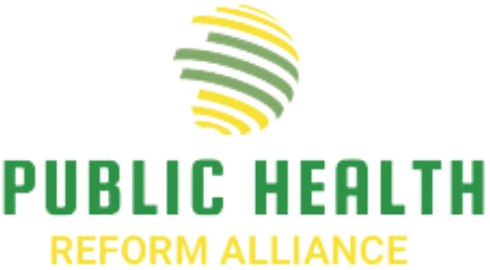June 28, 2024
Last night’s first Presidential Debate of the 2024 general election has triggered substantial commentary and analysis; much of it focused on aspects outside of the issues discussed. While health-care policy normally occupies space near the top of the American people’s priorities, and since public health issues are often complex, we thought it would be valuable to provide a deeper analysis around those issues that did arise and how transparency efforts by organizations like the Public Health Reform Alliance (PHRA) can empower the public to become better informed citizens.
All things COVID: The issue of how each administration handled the COVID-19 pandemic was a consistent theme. Many federal and outside watchdogs have dedicated tremendous time to this very topic. The House Select Subcommittee on COVID has identified numerousmissteps and a once-favored federal partner (EcoHealth) has been debarred from receiving future awards due to misconduct that may have contributed to the pandemic’s origins. PHRA recently penned an op-ed on the Biden administration’s effort to enshrine many of the failed practices of the COVID pandemic (e.g., censoring opposing views and expert commentary, business/school lockdowns, and mask/vaccine mandates) into an international agreement that would weaken American sovereignty and tie future policymakers’ hands. As these plans have seen sunlight, public opposition has grown, but the framework and intentions driving the WHO Pandemic Protocol remain a clear and present threat to both public health and basic Constitutional rights.
Medicare and Social Security: Aside from President Biden’s (bizarre and likely unintentional) claim that “we beat Medicare,” the fate of the nation’s biggest social welfare programs is certain to be an enduring topic. While the impact of the border crisis on the two programs’ financial strength is certain to be seismic, it probably will not be well understood for several years. In the immediate term, President Biden attempted to pivot to which candidate would actually cut Medicare or Social Security. Interestingly, President Trump has been quite explicit about his plans, stating he will not cut either program. This stands in stark contrast to the multiple actions of the Biden Administration in the last few years to cut payments to providers and arguably curtail enrollment in Medicare Advantage (MA), the largest and most popular Medicare program available to seniors. This is where transparency advocates can offer the most value. PHRA is actively seeking records on the topic to better understand which special interests are most heavily influencing the various attacks on the Medicare Advantage program and to discover why the administration has so aggressively targeted the program despite its tremendous popularity. Some policy experts have speculated that its market-based approach, the basis for its success, presents a grave threat to traditional fee-for-service Medicare. The latter program, which has the full support of advocates of a single-payer health care system and long-time Democratic party donors and special interests, has largely failed to control costs or match the quality of MA plans.
Abortion: Many pundits anticipate the topic to be one of the top issues discussed in the next several months. Last night’s debate largely focused on two areas. The first was primarily a political one, whether the states (and by extension their respective electorates) should be the decision-makers or the federal government, via action by either Congress or, as was the case before Roe v. Wade was overturned, the Supreme Court. The second area, late term abortions, does implicate decisions, data, and policies of public health bureaucrats at the federal and state level. While the reality that late-term abortions are permitted under many Democratic state laws is indisputable, the issue of who gets late-term abortions and for what reason is a point of contention among experts. At a recent congressional hearing, Sen. Dick Durbin asserted that data from the Centers for Disease Control and Prevention indicates late-term abortions are non-elective. That claim, along with President Biden’s debate reference to incest being the basis for late-term abortions, is one where Freedom of Information Act requests by PHRA may shed some light.
Statement from our Director Martin Hoyt:
“Few areas of the federal government are in greater need of reform than our public health bureaucracy. Just in the last few years, we have witnessed an insistence on returning to failed pandemic policies, openly censoring health critics, and assaulting on our nation’s most popular and successful elder care program (Medicare Advantage). Accordingly, the American public is right to be confused about the priorities of its ‘public health elite.’ Our country needs a return to the principles of genuine scientific integrity, open discussion, and an embrace of the market-based health insurance that appears to beworking so well for seniors.”

